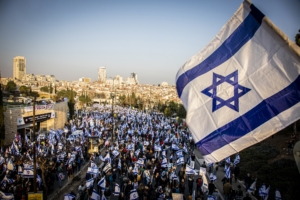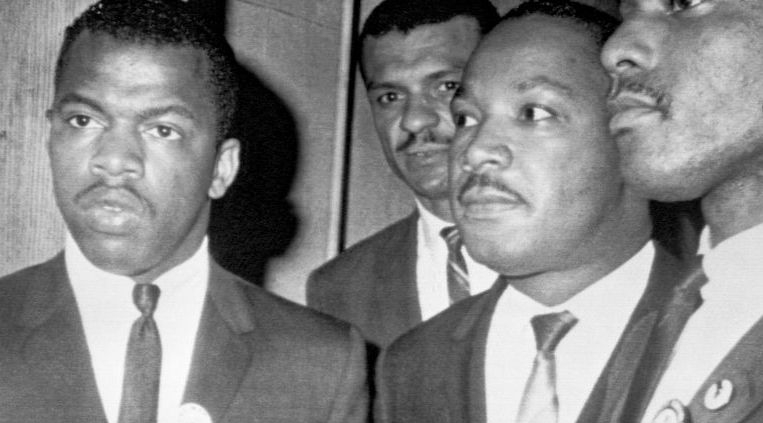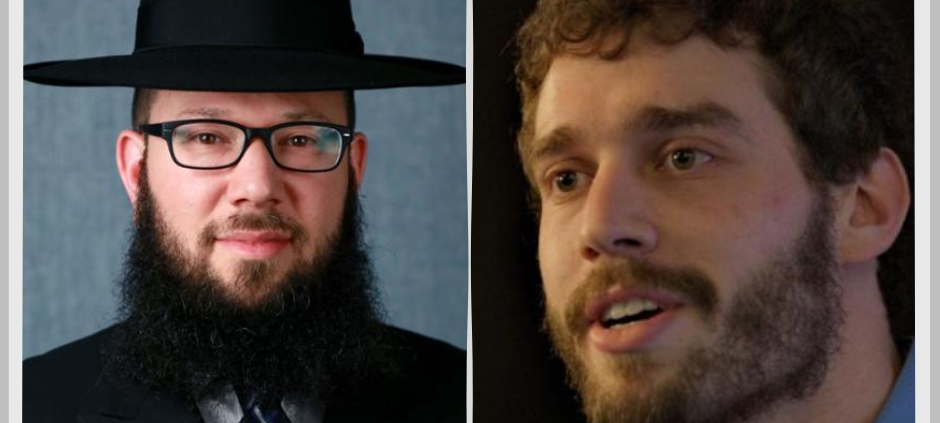The air conditioning was not working. The temperature in the plane was at least 90 degrees. Hot air was coming through the vents, so I sat very still. Others were agitated. Lacking faith in the repairs, a dozen passengers stood in the aisle, demanding to be let off the plane. Rabblerousers! Shortly, a repair crew appeared. Of course, this reminded me of Torah.
The fifth book of the Torah, Deuteronomy, begins with Moses scolding the people. “How can I bear unaided the trouble of you, the burden, and the bickering!” Throughout the journey in Sinai, Moses overcame much bickering and many insurrections. But not all rebellions are negative. Sometimes, demonstrators are just impatient. Sometimes, protestors have a holy cause.
Back on the plane, the stewards were patient. The yelling subsided. Attempts to disembark were thwarted. Finally, the air conditioning was repaired.
How did I stay calm? I sat thinking about the miracles of flying. A plane weighs about 100,000 pounds, and yet it flies. I can send a text message from 30,000 feet high above the earth. Even the meal I was served was good. I focused on these miracles even while stewing in my seat. Had the plane stayed warm, I would still benefit from the miracle of jet propulsion whisking me into the heavens and down again. I had calming faith. And I also wondered how long it would be before I stood in the aisle asking to leave! Passive or pugnacious, which would it be?
Had this been a continuing flight in the United States, I might have been less understanding. However, this was the last leg of my journey to Israel. Whether by dint of psychology or spirituality, I was reflective, not reactive.
While in Israel, I witnessed another insurrection. Tens of thousands in the streets, some draped in the Magen David flag, all demonstrating against a craven and corrupt government. The ruling coalition is unholy in the Holy Land. They forg et the meaning of the miracle that is Israel. To be patient and wait for repairs would not suffice. Israel is not a short flight. It is a journey of biblical proportions.
et the meaning of the miracle that is Israel. To be patient and wait for repairs would not suffice. Israel is not a short flight. It is a journey of biblical proportions.
Israel is deeply flawed, running hot, and close to rebellion. Yet this Holy Land inspires me. The myth draws me in. The faith lifts me up. My mantra for this trip was to keep calm and stay positive. Yet, there is a boiling point. By the end of ten days, I was sad, anxious, and doubtful.
Israel is not unique as a nation grappling with power-hungry and disingenuous leaders. Back on a plane headed west, I thought about our own country. In the United States, we, too, are convulsing with demons of the past reclaiming authority. Our country used to be a beacon of hope. Do we remember the miracles of America as a haven for immigrants, an abundant land, and a leader in the sciences? Perhaps we need demonstrations in Washington, DC.
The protestors in Israel inspire me. I feel ready to take to the streets of our Capitol to rescue our nation from the abyss of racism, sexism, and gun violence. For the sake of democracy, we can’t remain calmly in our seats. For the sake of our children, we need to set aside patience and pick up the flag. For the sake of freedom, we cannot just wait for the temperatures to drop.
Rabbi Evan J. Krame









 Evan J. Krame was ordained as a rabbi by the
Evan J. Krame was ordained as a rabbi by the